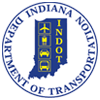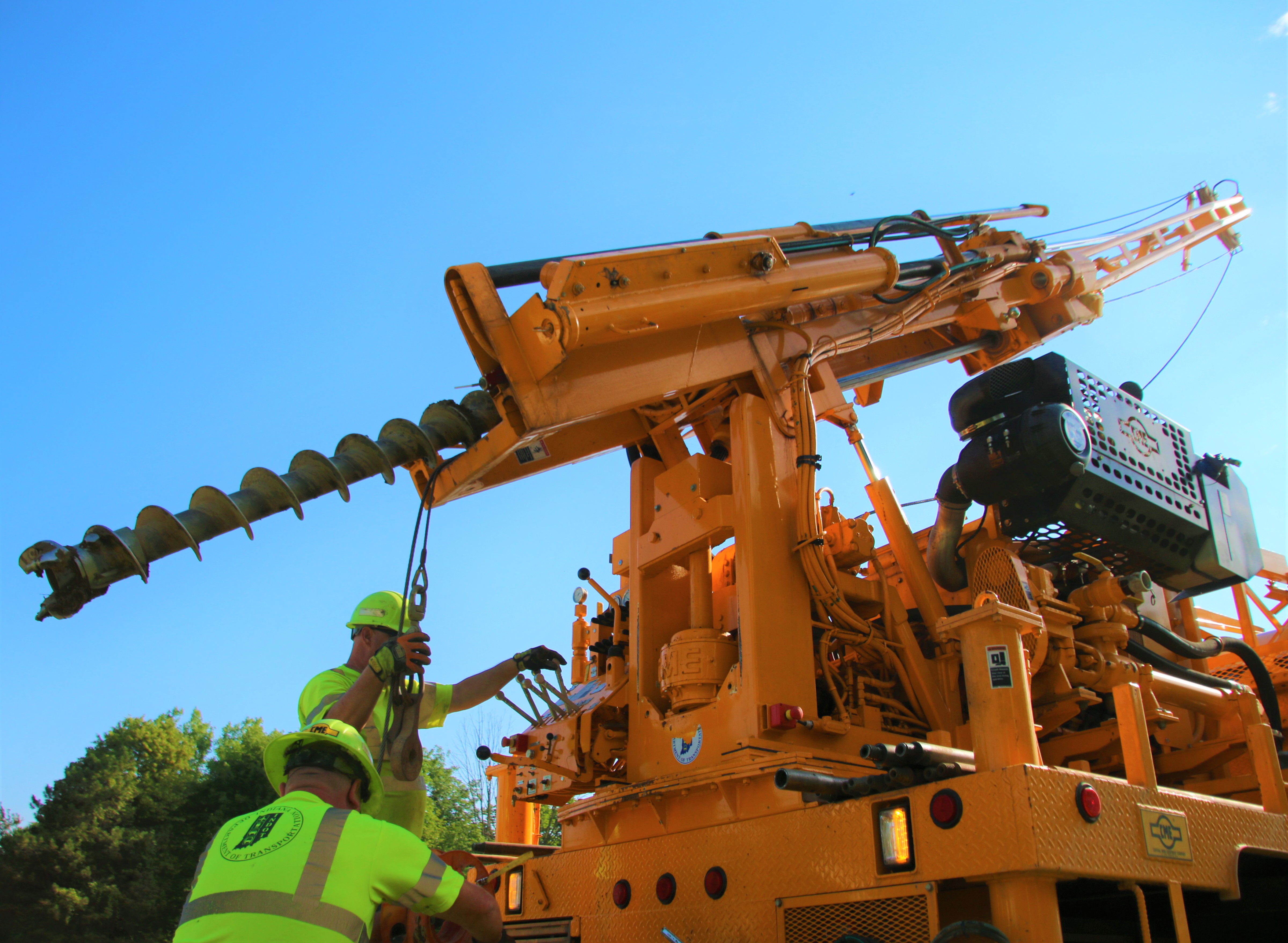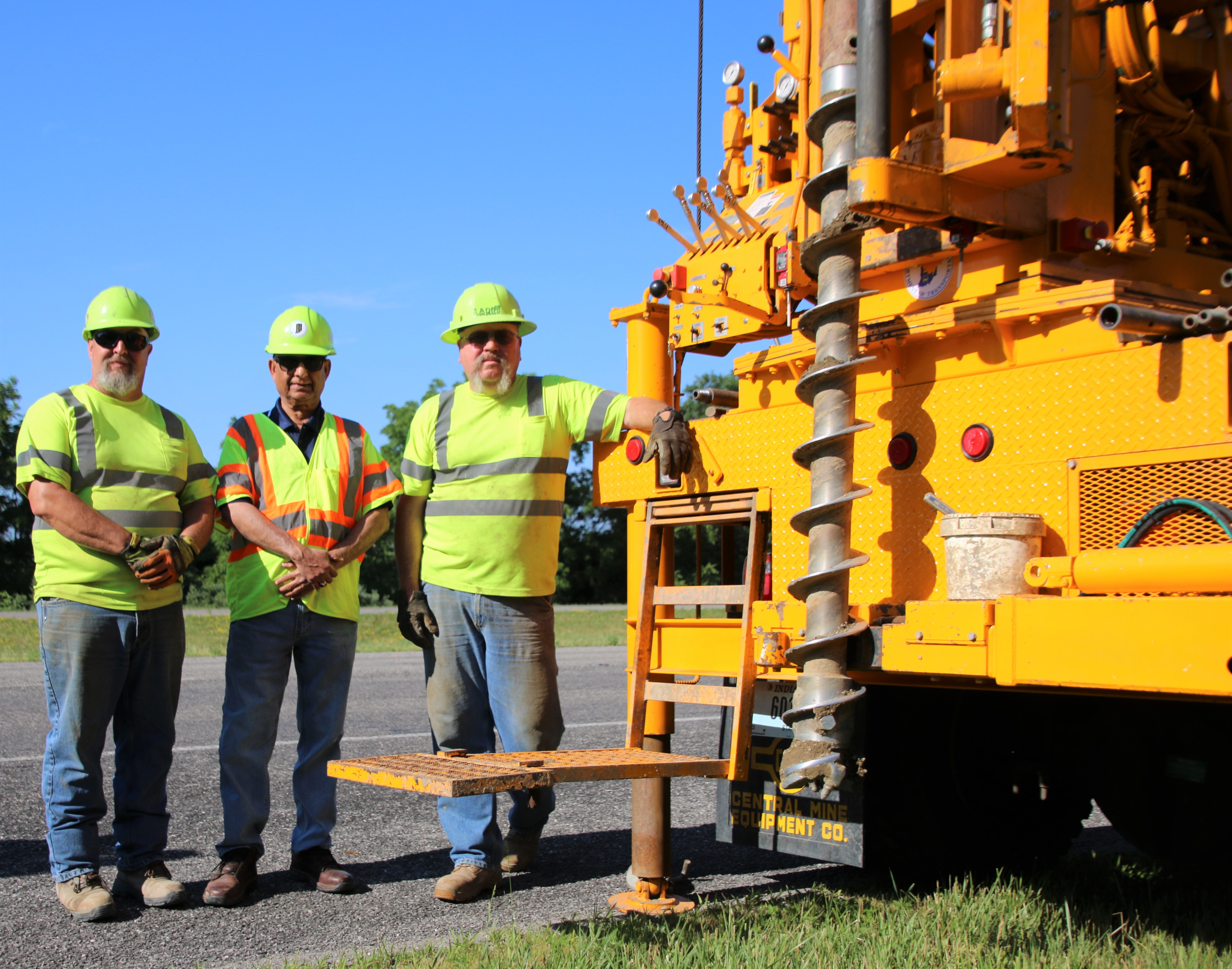August 2022
A huge drill rig that is operated by the field operation section of INDOT’s Geotechnical Engineering Division is so productive, even during difficult jobs, that INDOT personnel gave it a nickname: Mean Jean.
Geotech purchased the rig — a Central Mine Equipment (CME) 55 on a Peterbilt 348 chassis — last year. The old rig that Mean Jean replaced was unreliable and frequently broke down.
Drillers use the rig to perform geotechnical investigation across Indiana, including drilling borings, collecting soil and rock cores, sampling pavement cores, and performing lab testing. INDOT engineers analyze field and lab data to develop a subsurface profile and optimize foundation design to support bridges, roadways, pavement, retaining walls, and drainage structures. The data also helps inform engineers when dealing with landslides, karst, unstable soil, soft rock, or any caving issues that may result from abandoned underground coal mines.
Geotech’s field operation section members tackle most of INDOT’s in-house design and emergency projects. They wouldn’t be nearly as effective without the help of Mean Jean, which is 27 feet long, 10 feet wide, and 11 feet high with an additional 25-foot mast height.
The truck-mounted drill rig carries dozens of 5-foot-long hollow-stem augers and 5-foot solid-stem augers, plus split spoons and rods for sampling. Drillers maneuver Mean Jean year-round to collect soil samples at proposed INDOT projects; the samples are then sent to INDOT labs for inspection. All the information collected during the drilling operation is included in a report be used by Geotech engineers during project design and by contractors during construction.
Routine borings go 20 feet deep, but the crew has used Mean Jean to take 120-foot borings. During those jobs, crew members employ the rig’s 360-gallon water tank to flush out fine sand and/or rock-core fragments between drillings.
The drill team consists of Supervisor Iqbal Khan and drillers Larry Bewley, Eric Roush, and Dennis Torrance. All are supervised by Geotechnical Engineering Division Director Athar Khan.
“There are 259 soil types in Indiana, and it’s important for engineers to know what they’re dealing with,” said Roush. “I enjoy the job as I’m assuring that citizens are getting the best road product.”


